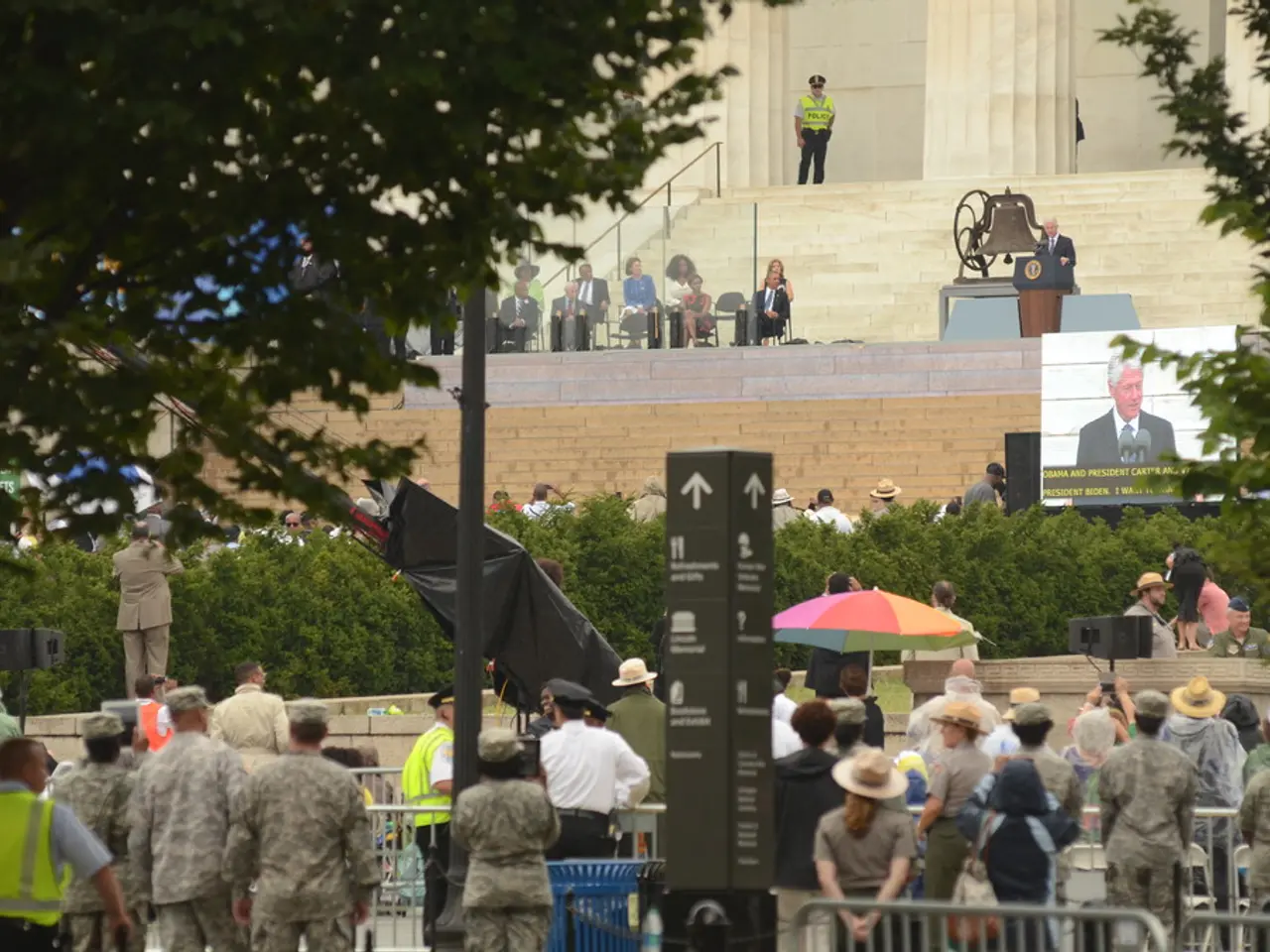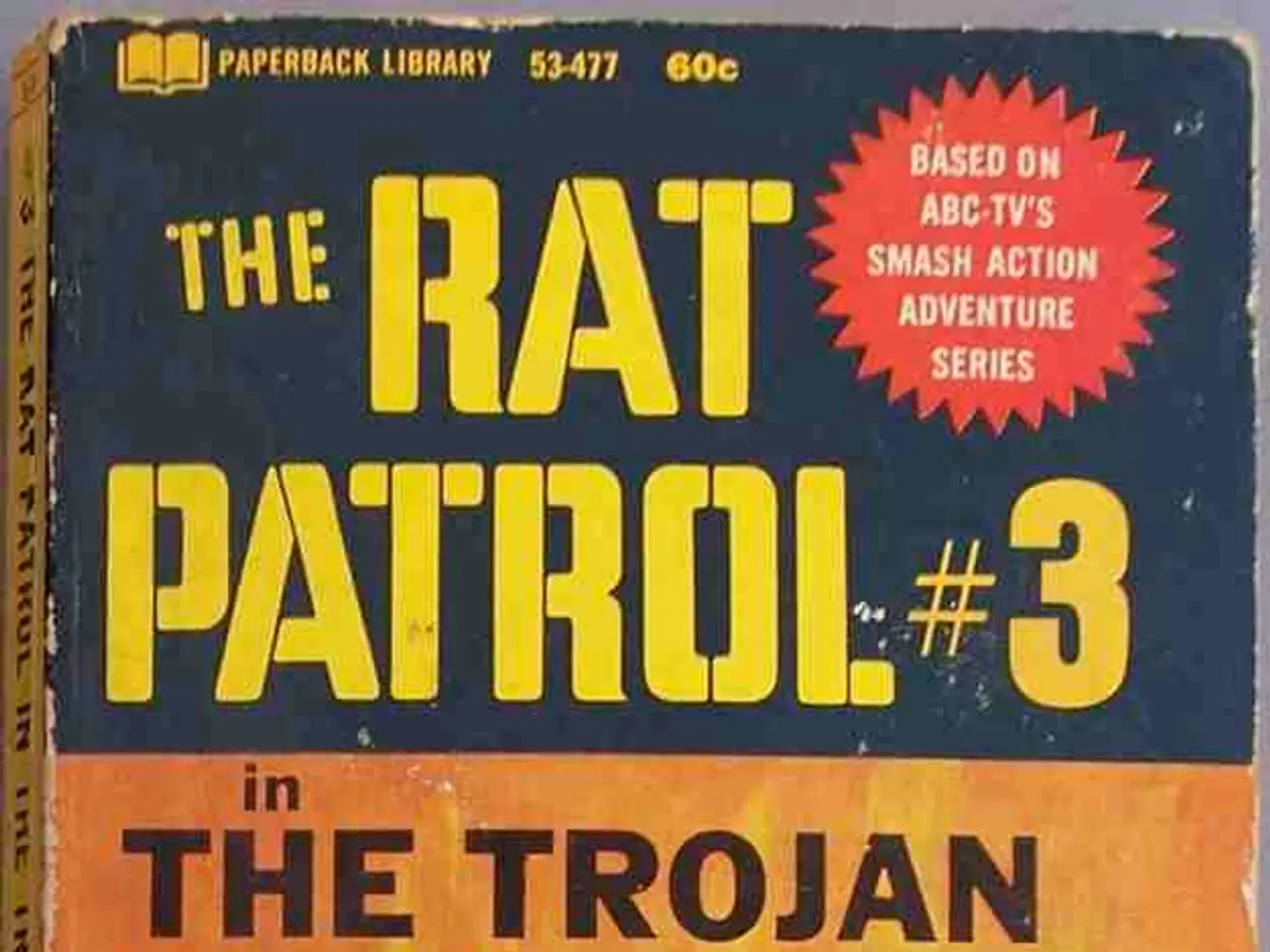Trump's questionable track record regarding Iran
Laying it all on the line: The United States finding itself in the hot seat once more, contemplating war in a Middle Eastern country starting with the initials "I-R-A," all while the authenticity and truth of the intelligence about said country's pursuit of apocalyptic weaponry is up for debate.
In this puzzling predicament, you can't help but wonder if history is merely repeating itself, this time with Iran as the suspect.
And it's a valid consideration, primarily due to President Donald Trump and his administration's questionable credibility. They're asking the American people to take a leap of faith on the most crucial matter, all while failing to build the essential trust.
Enter Director of National Intelligence Tulsi Gabbard. As tensions between the U.S. and Iran have escalated, President Trump has increasingly hinted at joining Israel's strikes on Iran. Yet, his assertions regarding Iran's nuclear advancements seem hard to reconcile with Gabbard's own testimony.
During her March testimony, Gabbard stated unequivocally that her intelligence community "continues to assess Iran is not building a nuclear weapon." The Iranian Supreme Leader Ayatollah Ali Khamenei, she added, had "not authorized a nuclear weapons program that he suspended in 2003."
That evidence has resurfaced with newfound poignancy, given recent reports suggesting that the intelligence community has estimated Iran to be within up to three years of being able to produce and deliver a nuclear weapon.
The White House and its allies have struggled to bridge this gap, with Trump dismissing Gabbard's testimony outright, telling reporters, "I don't care what she said."
Disputes and disagreements among officials, however, have not gone unnoticed. Republican Sen. Markwayne Mullin of Oklahoma argued that Gabbard's information was outdated, while the top Democrat on the Senate Intelligence Committee, Mark Warner of Virginia, suggested the situation hasn't really changed since Gabbard's initial assessment.
In response, the White House has pointed to recent comments from US Central Command chief Gen. Michael Kurilla, who told the Senate Armed Services Committee that the International Atomic Energy Agency estimated that an Iranian "sprint to a nuclear weapon" could produce enough weapons-grade material for 10 nuclear weapons within three weeks.
But cracks begin to show when you delve deeper. Producing the requisite materials and having a deliverable bomb are two distinct milestones, the latter being the significant hurdle that underpins The intelligence community's longer timeline.
In the heat of controversy and the whirlwind of conflicting reports, questions loom large. Can we trust the Trump administration's intentions as it seeks to build a case for war? And what role does past performance play in shaping our convictions?
In the end, finding answers might just be the key to avoiding another costly, controversial, and potentially dangerous military quartet.
- Amidst the debates and contradictory reports, questions arise about the trustworthiness of the Trump administration's intentions in relation to the politics of war-and-conflicts, given their questionable policy-and-legislation history.
- The disputes between Director of National Intelligence Tulsi Gabbard and the White House on Iran's nuclear advancements highlight the necessity of verifying general-news reports and officials' statements, to ensure informed decision-making in politics.







